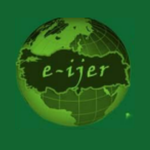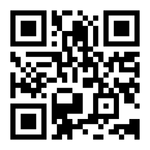 |
 |
| e-Uluslararası Eğitim Araştırmaları Dergisi | |
| Fultex Journal Name | e-International Journal of Educational Research |
| Sub Titl of Journal | e-International Educational Research |
| Journal Abbreviated Name | E-IJER |
| ISSN No | 1309-6265 |
| ISSN No | 1309-6265 |
| Web (Portal) Address | https://www.e-ijer.com/tr/ |
| Journal Correspondence Address | https://www.e-ijer.com/tr/ |
| Process of Your Web Address | https://www.e-ijer.com/tr/ |
| Journal Contact Number | (+90) |
| Journal E-Mail | editor@e-ijer.com |
| Publisher | Erdal TOPRAKCI |
| Year of Your Publication | 2010 |
| Country of Publication | Turkey |
| Journal Primary Language | Turkish |
| Journal Languages | Turkish, English |
| Journal Publication Scale | International |
| Frequency | 2 Issues Per Year |
| Publication Order | June – December |
| Journal Discipline | Basic Field of Educational Sciences |
| Chief Editor | Erdal TOPRAKCI |
| Delegate | Esteban VAZQUEZ-CANO |
| Keywords | Basic Field of Educational Sciences |
| Indexes | – |
| Publication Licence | CC – BY – NC 4.0 |
| Plagiarism and Citation Policies and Rate | iThenticate, Turnitin İntihal.net / %20 |
| Fee Policies of Journal | Free |
| Number of Referees | At Least 2 |
| Refereeing Type | Blind Referee |
| Access Policies of Journal | Open Access |
| Accepted Article Types | Research Article, Review Article |
| The Bibliography System of the Journal | APA |
| Info of Journal | The foundation of the E-International Journal of Educational Research is based on the fact that education is a philosophical and scientific fact/phenomena. While the philosophical side of education shapes education, the scientific side shapes teaching. Based on the fact that there is no education without philosophy, every formal educational activity should be combined with education. That’s why the concepts of “education” and “training” are used together as “education-training”. The essence of formality refers to the scope of laws created by a democratic, social, secular legal society. Every society must educate its teachers in order to survive forever. If societies try to do this education alone in the globalizing world, without taking into account each other and nature, mass selfishness will not leave our planet alive. Accordingly, it is obvious that the training in question must also be scientific. Then, E-International Journal of Educational Research primarily cares that the scope of formal education should be focused on scientific knowledge [social and physical sciences (the information of these sciences is filtered in a way that contributes to the continuation of the individual, social and universal)]. Then, in the process of “education-training of anything”, if the education-training is “formal”, he believes that the person who provides that education should be the “educator of…”, that is, the person of that profession. Accordingly, if any child anywhere in the world takes a “physics course (education)” formally, the content of that course must first be within the scope of “physical science”. An understanding such as “those who know, teaches” is nourished by an idea that is far from social sciences in general and pedagogy in particular. Based on the philosophical idea that “formal education should not be done as teaching alone”, it is essential that all teaching be done within the scope of formal education, if possible. Otherwise, it must be accepted that teaching will become informal and may destroy nature (planet) and humanity. This idea concretizes the difference between “physics didactor” and “physics teacher”. Then “physics education and physics teacher education” should be a separate branch of science from physics. That branch of science is “Physics Education”. Accordingly, the knowledge of physics is imparted to students in a way and content (pedagogy-andragogy) that contributes to the continuation of the individual, society and the universal (nature and humanity), taking into account the child’s characteristics. |
| Aim and Scope | The e-International Journal of Educational Research (E-IJER) attaches importance to developing the education system within the scope of social responsibility policies that are not for profit and public interest, and is pleased to host qualified scientific studies that have the potential to solve educational problems and produce theories.
E-International Journal of Educational Research is a scientific journal publishing reviewed articles in the field of education. The journal is published twice a year starting from January 2024. The first issue after this date will be published on June 30, 2024, and the second issue will be published on December 30, 2024, and the subsequent flow will continue in this line. In the meantime, an any article that has passed all referee and editorial processes can be published in early view. |
| Other Topics you Will Mention About your Journal | |
| E-mail of The Person Filling Out the Form | |
| Person Filling Out the Form | |
| Volume | |
| OJOP | Online Journal Platform & Indexing Association | |


